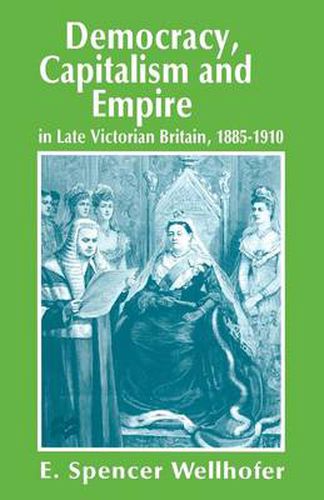Readings Newsletter
Become a Readings Member to make your shopping experience even easier.
Sign in or sign up for free!
You’re not far away from qualifying for FREE standard shipping within Australia
You’ve qualified for FREE standard shipping within Australia
The cart is loading…






This title is printed to order. This book may have been self-published. If so, we cannot guarantee the quality of the content. In the main most books will have gone through the editing process however some may not. We therefore suggest that you be aware of this before ordering this book. If in doubt check either the author or publisher’s details as we are unable to accept any returns unless they are faulty. Please contact us if you have any questions.
Late Victorian Britain witnessed three challenges to its eighteenth-century Republican Ideal: democracy, capitalism and ethnic nationalism. Calling upon the languages and debates of the period, the book examines contending images of the social order with new data analytic techniques and information. Joining the contextual study of history to advanced analytic techniques refutes standard interpretations and provides a more complete portrait of the period. The conclusions on democratic transition have important implications for understanding today’s efforts to reap democracy’s rewards.
$9.00 standard shipping within Australia
FREE standard shipping within Australia for orders over $100.00
Express & International shipping calculated at checkout
This title is printed to order. This book may have been self-published. If so, we cannot guarantee the quality of the content. In the main most books will have gone through the editing process however some may not. We therefore suggest that you be aware of this before ordering this book. If in doubt check either the author or publisher’s details as we are unable to accept any returns unless they are faulty. Please contact us if you have any questions.
Late Victorian Britain witnessed three challenges to its eighteenth-century Republican Ideal: democracy, capitalism and ethnic nationalism. Calling upon the languages and debates of the period, the book examines contending images of the social order with new data analytic techniques and information. Joining the contextual study of history to advanced analytic techniques refutes standard interpretations and provides a more complete portrait of the period. The conclusions on democratic transition have important implications for understanding today’s efforts to reap democracy’s rewards.